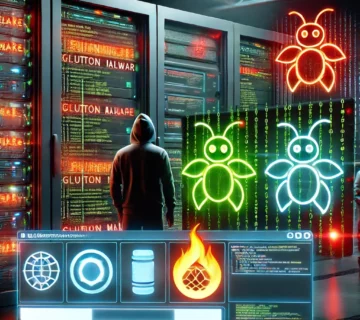
New Glutton Malware Exploits Popular PHP Frameworks Like Laravel and ThinkPHP
Glutton, a newly discovered modular malware, exploits vulnerabilities in popular PHP frameworks like Laravel and ThinkPHP to steal data and deploy backdoors. Initially linked to the Winnti (APT41) group, its unusual lack of encryption and obfuscation raises questions about its true origin. The malware targets both legitimate systems and other cybercriminals, showcasing a unique "no honor among thieves" approach. Its capabilities include file manipulation, command execution, and data exfiltration, posing significant risks to organizations. Protecting against Glutton requires updating PHP frameworks, using strong passwords, and deploying advanced security solutions. ... Read More